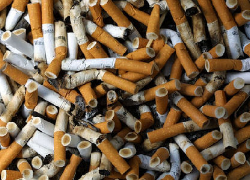The United States, Canada, Mexico, Japan, Australia, South Korea, Vietnam, and five other countries stand to gain a great deal from the Trans-Pacific Partnership (“TPP”), a potential lucrative regional trade agreement. The agreement would further lower tariffs and other trade barriers to commerce. However, countries have not been able to agree on how the issue of tobacco should be settled. Specifically, countries have not been able to agree on the extent to which countries should be allowed to regulate the sale of foreign tobacco products.

There is a clear consensus in the scientific community and public health-oriented organizations that tobacco use leads to a wide variety of health issues. According to the World Health Organization (“WHO”), there are currently more than one billion smokers in the world. Of these one billion, tobacco kills nearly six million each year, with 600,000 deaths due to second-hand smoke. This high level of tobacco use is leading countries down a dangerous path that will result in more than eight million deaths annually by 2030. Thus, the need for tobacco regulation has never been more pressing.
Because of the need for tighter tobacco controls and a disturbingly high level of illicit trade in the product, Malaysia proposed a special “carve out” exemption in the TPP for tobacco. This would allow countries that are parties to the TPP to set their own potentially stiff regulations on tobacco and exempt them from broader potential trade restrictions. This type of exemption could also mean that “health considerations could take precedence over expanded trade.” As tobacco is a uniquely dangerous agricultural product, many, particularly developing countries, have welcomed the proposed exemption.
While the Obama administration initially led many to believe it would support such types of strong measures, the administration recently proposed its own weak measure in regards to tobacco. The United States proposal “cites tobacco within the standard public health and safety exception that appears in U.S. trade agreements, but…no longer includes other tobacco-specific protections.” This means that companies would still be able to challenge public health, safety, and environmental regulations. Although some claim that there is language included within the proposed TPP that would “reduce the likelihood of those changes prevailing,” the fact of the matter is that tobacco presents so many health and regulatory concerns that it cannot and should not be afforded the same status as other products.
The tension between the free trade and the need for control of dangerous products such as tobacco has never been clearer. While tobacco is still legal, and thus cannot be limited to the extent many would dream of, the tobacco industry has greatly expanded into developing countries’ markets. Nearly 80 percent of all future deaths caused by tobacco will likely be in these developing countries. The United States has a unique opportunity to make great strides in promoting public health and leave the tobacco industry behind in negotiating the TPP. However, the recent U.S. TPP proposal shows that big tobacco business still controls much of the world economy, and that business will continue to be able to challenge helpful and necessary tobacco regulations under the guise of free trade.
Bailey Woods is a 3L and Candidacy Editor on the Denver Journal of International Law and Policy.

